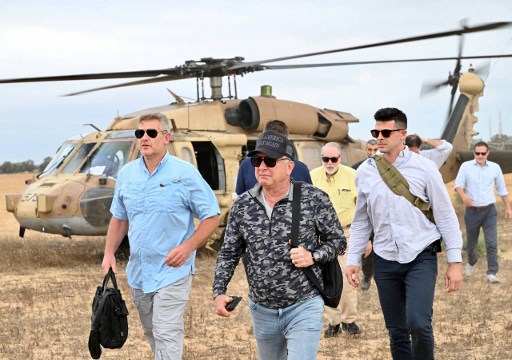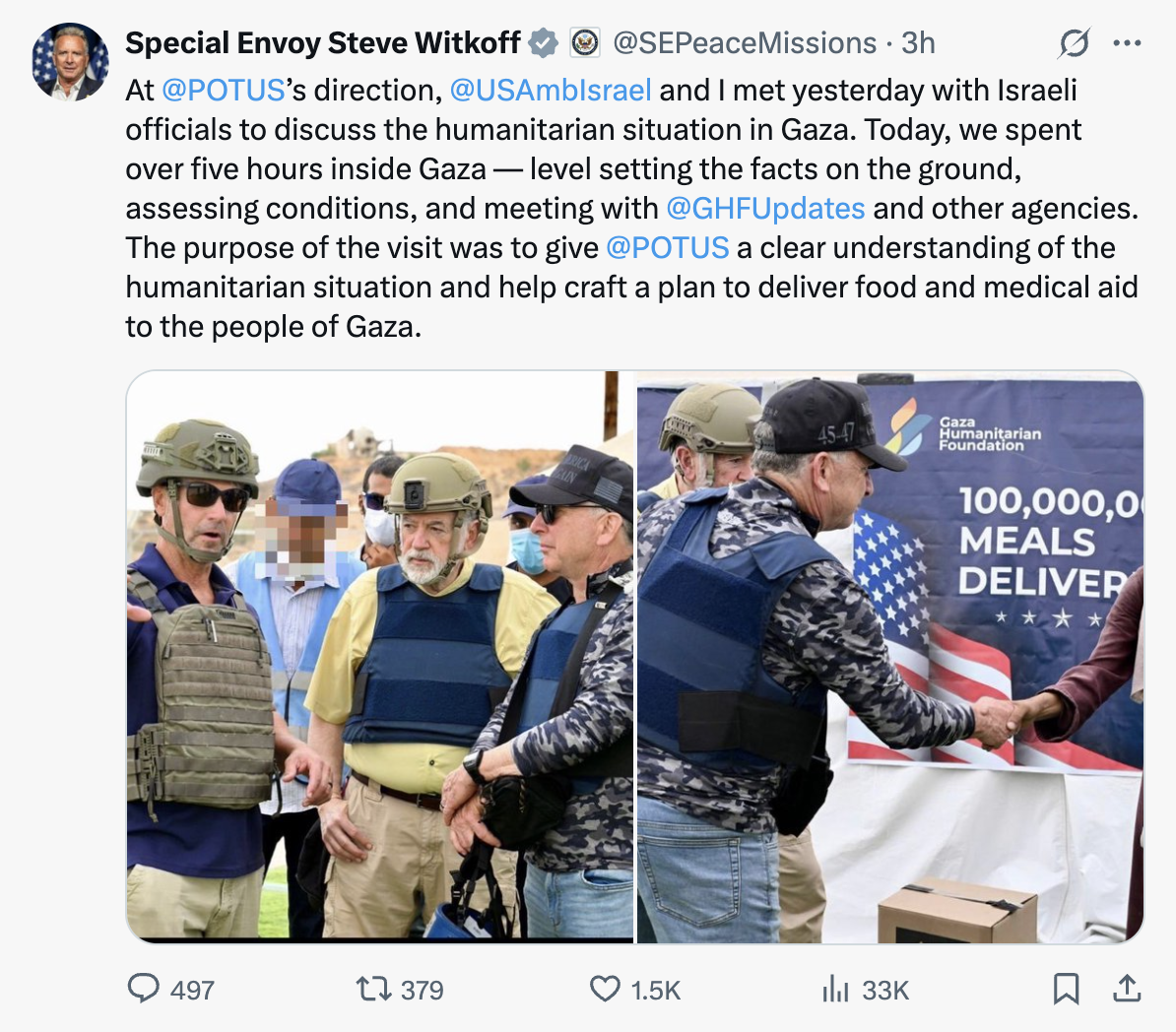President Donald Trump's Middle East envoy, Steve Witkoff, visited Gaza on Friday, where he visited a food distribution site around which Israeli forces have killed hundreds of Palestinians, according to a UN report. Witkoff also met with Israeli Prime Minister Benjamin Netanyahu, as international outrage grows over the famine in Gaza caused by months of aid restrictions by Israeli authorities.

Witkoff, a former real estate lawyer with no background in foreign policy or humanitarian aid, said the purpose of the visit was to “give Trump a clear picture of the humanitarian situation and help him develop a plan to get food and medical aid to the people of Gaza.” The BBC reported that the presidential envoy visited a GHF (Gaza Humanitarian Foundation) site near Rafah in the south on Friday. He was accompanied by Mike Huckabee, the US ambassador to Israel, and members of the Israeli military.
In a post on X following the visit, he wrote that “we spent over five hours in Gaza today – assessing the situation on the ground, examining conditions, and meeting with GHF staff and other organizations.” Huckabee said it was an “impressive achievement” that GHF was distributing “over a million meals a day.”

Chapin Fay, a spokeswoman for the Israeli- and US-backed Gaza Humanitarian Foundation (GHF), said the visit showed Trump understood the crisis and that “the primary focus should not be Hamas, but feeding civilians.” The visit was accompanied by senior Israeli officials, but no leading international aid agency was present – raising questions about the credibility of Israeli and US plans to increase aid, despite growing criticism of the GHF’s operations, the Guardian reports.
After Witkoff’s visit, Palestinian rescue workers reported that Israeli forces shot dead three Palestinians near a GHF site on the southern edge of Gaza City—although it is unclear whether it was the same site Witkoff visited. Human Rights Watch has called the GHF-run sites “death traps” that have become the scene of regular “bloodbaths.” The UN says Israeli forces have killed nearly 900 Palestinians trying to reach these aid distribution points.
Although several countries have resumed airdropping food supplies, experts say this is not enough to stem the famine. According to UN data, since Israel eased the blockade in late May, it has allowed an average of 70 trucks per day - compared to the 500-600 that were allowed in during the previous six-week ceasefire.
Israeli officials, meanwhile, claim that “there is no famine in Gaza” or that Hamas looting or UN failures are to blame – but the UN’s food security monitor has provided incontrovertible evidence that hunger is spreading, in what many are calling the use of starvation as a weapon.

